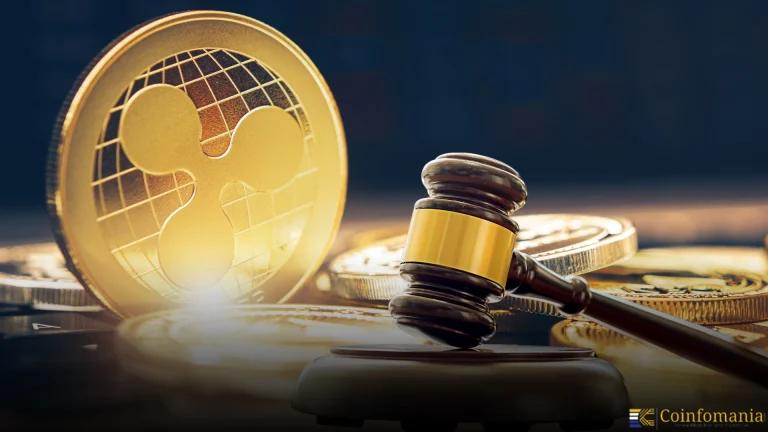Cryptocurrency Regulations in North Macedonia
In North Macedonia, cryptocurrencies are gaining some speed, but legislation is still developing. Although digital assets are not considered legal tender, they are neither prohibited nor recognized, though. The government is adamant about integrating cryptocurrencies into the financial system with an aim to attract investment and improve the revenue of the state; this is being […]

In North Macedonia, cryptocurrencies are gaining some speed, but legislation is still developing. Although digital assets are not considered legal tender, they are neither prohibited nor recognized, though. The government is adamant about integrating cryptocurrencies into the financial system with an aim to attract investment and improve the revenue of the state; this is being done under the leadership of the prime minister, who belongs to a right-wing political party formed in 2024.
Currently, crypto operations are under a legal gray zone, where trading is, on one hand, allowed but leaves the consumer without safeguards and unclear rules on taxation. The drafting of the authorities is aligned with EU standards, specifically regarding Markets in Crypto-Assets (MiCA), and is aimed at legitimizing the sector while reducing the fundamentals of fraud and money laundering. The above reforms, when implemented, would make North Macedonia a new blockchain innovation hub in the European Union.
Historical Context
North Macedonians have been sort of turning their heads toward cryptocurrency for quite some time. It has never been able to embrace its neighboring Balkan countries- they have never really banned or accepted it fully. The National Bank of the Republic of North Macedonia (NBRM) has time and again warned about the perils of these types of currencies because they remind the bank’s officials of price volatility and dangers associated with fraud. Nevertheless, with the increase in adoption and global trends pertaining to cryptocurrency, there is now some consideration for certain structured regulations by the authorities.
Key milestones:
- 2018: NBRM issues warnings against crypto investments.
- 2023: Discussions begin on AML/CFT compliance for crypto.
- 2024: New government prioritizes crypto regulation to attract foreign capital.
- 2025: Draft laws on digital assets expected, influenced by EU’s MiCA framework.
Regulatory Framework
North Macedonia currently lacks a dedicated crypto law, but general financial and anti-money laundering (AML) rules apply.
- Legal Tender Status – Cryptocurrencies do not have recognition as legal currency in North Macedonia.
- Trading & Investment – Crypto trading is conducted freely but mostly through offshore exchanges because there are no local regulations.
- AML/CFT Compliance – Partial enforcement, applying only to registered financial service providers.
- Taxation – Unclear rules, though capital gains tax may apply to crypto profits.
- Consumer Protection – Very few measures exist, putting investors at risk in unregulated markets.
North Macedonia’s Crypto Policies
Current Stance:
- No Ban, But No Legal Status: Crypto is neither illegal nor officially recognized.
- Foreign Exchange Dominance: Most of the dealings are done on a platform like Binance since not all local exchanges do not have any regulations.
- Banking Restrictions: Some banks usually block transactions because it is considered jumbled and leads to compliance risks.
Government Initiatives:
- AML/CFT Measures: Strengthening oversight to prevent illicit activities.
- EU Harmonization: Preparing for future crypto laws in line with MiCA.
- Investment Push: Encouraging blockchain startups to boost the economy.
Approach to Crypto Innovation
North Macedonia maintains a cautiously optimistic stance toward blockchain innovation, balancing interest in technological advancement with regulatory prudence.
Current Developments in Crypto Innovation:
- Emerging Startup Ecosystem – Skopje has recorded new startups in the blockchain industry, particularly those focused on fintech and decentralized applications.
- CBDC Research – The National Bank of the Republic of Macedonia has embarked on its exercises for investigating digital denars, even though it has no known launch date in the future.
- Academic Integration- Universities are integrating courses on blockchains. This will also create local knowledge on all matters relating to cryptocurrency and Web3 technologies.
If North Macedonia puts in place favorable regulations and incentives for blockchain companies, this will serve to attract foreign investment and retain tech talent. Nevertheless, continued delays in the policymaking process could further jeopardize the present status quo of its innovative landscape in cryptocurrency.
Key Difficulties and Problems
- Regulatory Gaps – Due to the lack of a legal framework for ICOs or DeFi platforms or NFT transactions, businesses and investors face an uncertain environment.
- Scams and Fraud – Absence of any kind of regulation provides a platform for fraudulent schemes to take root that expose participants to huge financial risks without any protection.
- Banking Barriers – Most traditional financial institutions deny any transactions pertaining to crypto, hampering the conversion of crypto into fiat.
- Tax Confusion – Given unclear taxation policies, investors and traders have no certainty on their reporting obligations and liabilities.
- Market Uncertainty – These factors merge to create a high-risk environment that keeps institutions away from participation but enables the activity to run unregulated.
Main Rule Changes and Future Directions
The crypto scene of North Macedonia is on the verge of further development at the level of regulation in late 2025-2026. Political intervention will take place with the launch of licenses for exchanges, stricter AML rules according to FATF standards, and guideline settings from the EU’s MiCA framework. Tax clarity on capital gains and VAT will be forthcoming. All in all, these move-shoots are said to protect innovation from unbalancing security and position the country as a regional crypto hub if it gets done right. Restrictions have the potential to send such business operations abroad. Yet, in a nutshell, these are two crucial years for the future of the digital asset of North Macedonia.
Conclusion
North Macedonia is working on new crypto regulations for 2025-2026. The country intends to license exchanges for fighting money laundering and adopting EU standards. When it comes to such developments, the state could potentially end up becoming a hub in crypto, but they may just be too stifling for business with stringent rules and regulations. The next two years will clear away all doubt regarding whether North Macedonia is on the correct path toward establishing a balance between innovation and safety within its new crypto market.
FAQs
1. Can the companies pay salaries in cryptocurrency under the law in North Macedonia?
No, as cryptocurrencies are not recognized as legal tender, salaries must be paid in the official currency (MKD). However, private agreements may exist, though they lack legal protection.
2. Do particular laws govern crypto mining activities?
At this moment, there are no specific laws to govern crypto mining, though miners could be affected by general tax and energy consumption laws. Future regulations might require such miners to acquire a license and to have reporting requirements.
3. How does North Macedonia treat stablecoins like USDT or USDC?
Stablecoins remain unregulated, but authorities monitor them due to AML risks. Their classification (as currency, security, or commodity) will likely follow EU standards under upcoming rules.
4. Can crypto exchanges operate legally without a local license?
Yes, foreign exchanges serve Macedonian users since no local licensing exists yet. However, the upcoming crypto law may require registration for market access.
5. Does North Macedonia plan to restrict privacy-focused coins like Monero?
While not currently banned, privacy coins may face restrictions under future AML regulations. The government prefers traceable transactions to comply with FATF standards.
6. What kind of penalties are given for failing to report crypto earnings to taxing authorities?
The forms available under the general tax laws are many, and while there may be a certain lack of clarity in relation to tax laws, it could definitely be construed within the ambit of intentional evasion. Clear crypto tax guidelines are expected by 2026.
7. Can banks freeze accounts for crypto-related transactions?
Yes, banks may flag or freeze accounts involved in crypto activity due to AML policies. Users often resort to P2P platforms to avoid banking hurdles.
8. Will North Macedonia’s regulations affect decentralized platforms (DeFi)?
Laws regarding North Macedonia will affect the DeFi environment. They continue to be unregulated, with new laws somehow imposing AML duties on developers or front-end operators. Full decentralization complicates enforcement.
9. Are NFTs considered securities or property under Macedonian law?
NFTs lack legal classification, but they’re likely to be treated as digital assets rather than securities. Clarity may come with the EU-aligned framework.
10. Does the government plan to incentivize blockchain startups?
Presently, there are no formal incentives, but some regulatory clarity might attract the startup ecosystem. Right now, rather than subsidizing, the focus is on compliance.
Follow us on Google News
Get the latest crypto insights and updates.
Related Posts

Ripple Highlights Custody as Key to $18.9T Tokenized Assets by 2033
Shweta Chakrawarty
Author

Hong Kong SFC Issues New Custody Rules for Crypto Platforms
Shweta Chakrawarty
Author

South Korea and Vietnam eye $150B trade despite Trump tariff
Shweta Chakrawarty
Author